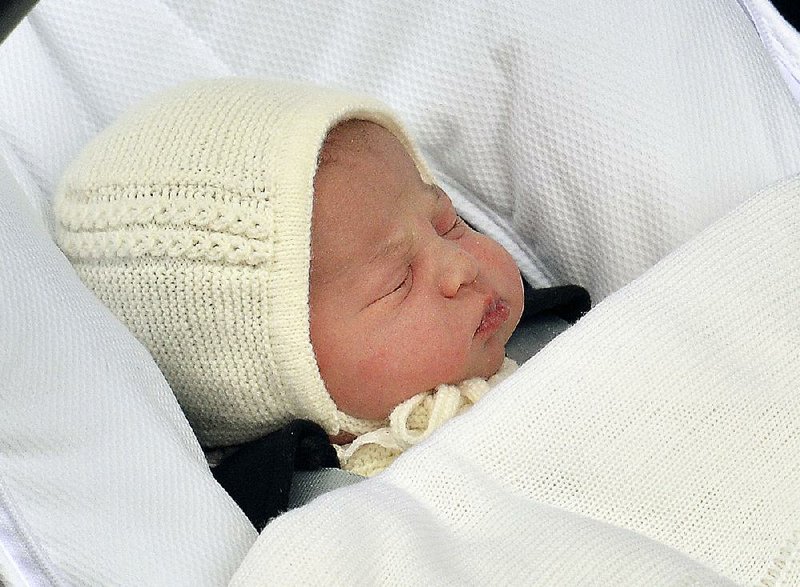Most babies in the United States are born on a weekday, with the highest percentages delivered between 8 and 9 a.m., and from noon to 1 p.m., according to a report by the National Center for Health Statistics.
That won't come as too much of a surprise to many pregnant women who had cesarean deliveries. Most births in the United States take place in hospitals. And as C-sections and induced labor have increased during past decades, more deliveries take place during the day, to maximize coordination and care with doctors and hospital staff.
But what happens if the baby is born in the home, where most out-of-hospital births occur?
Fewer than 2 percent of all U.S. births take place outside the hospital. Those births were most likely to take place between 1 and 4:59 a.m., the report found.
The reason? Mother Nature.
"Where nature is taking its course, infants are more likely to be born when it's completely dark out," said T.J. Mathews, a demographer with the National Center for Health Statistics, part of the U.S. Centers for Disease Control and Prevention.
These researchers think evolution has something to do with making the middle of the night an optimal time for delivery. Say a pregnant woman was part of a nomadic tribe. Having the baby in the middle of the day could mean the rest of the tribe might leave her behind as they move from place to place.
"You probably bled to death," said Aaron Caughey, chairman of the department of obstetrics and gynecology at Oregon Health & Science University's School of Medicine.
But in the middle of the night, when she and her fellow tribe members were hunkered down someplace safe, if she had the baby and started to bleed, "there would be someone to defend you against the lion that smelled the blood," Caughey said.
In general, delivering at night is more protective for the young, clinicians said.
That certainly seems to be true for some primates, our closest relatives. Wild orangutans, for example, would not be giving birth in the middle of the day because that wouldn't make sense from an energy standpoint, says Pamela Baker-Masson, a spokesman for the National Zoo in Washington. (They give birth in nests high up in trees.) They typically spend the majority of their time looking for and gathering food.
But with modern technology for humans, there is maternal choice. Even for mothers who have had one cesarean delivery, national data show that close to 75 percent would succeed with a subsequent vaginal birth if they chose to do so, said Melissa Fries, chairman of obstetrics and gynecology at MedStar Washington Hospital Center. "Many of them choose not to try for many, many reasons," she said, including difficulty getting time off from a job or arranging for child care.
Nationally, about 21 percent of cesarean deliveries are performed because the baby is in some kind of distress, she said, but another 12 percent of C-sections are elective surgeries.
And yes, there tends to be a peak of deliveries in the morning around 8 -- before doctors attend to other patients -- and then again at noon, before physicians see their afternoon patients. "It's not arbitrary," she said, referring to the delivery times. "It's not because we want to be golfing at 3 p.m."
PRIME TIME FOR BIRTH
If births were equally timed throughout the day, an average of 4.2 percent of newborns would be delivered each hour. But based on data reported from 41 states and the District of Columbia in 2013 -- the latest available -- the highest percentages of births occurred during the 8 a.m. (6.3 percent) and noon (6 percent) hours. Babies born on Saturday and Sunday were more likely to be born in the late evening and early morning hours than babies born during weekdays.
So, does it make a difference if your baby is born in the morning or born at night? This report didn't look at that issue.
Clinicians say it depends.
"If you consider all hospitals, especially those that don't have the staffing in the middle of the night, you're going to see more complications [at night], whereas in the daytime, there are usually enough people in the hospital," Caughey said.
If you're having your baby at a hospital that has adequate staffing 24-7, then it probably doesn't make a difference what time of day you deliver, he said. He and a team of researchers looked at time of delivery and metrics for newborn health for more than 34,000 births at an academic teaching hospital in San Francisco. (They excluded cesarean deliveries.) The hospital had round-the-clock staffing to handle a variety of emergencies.
"We found no differences," he said.
ActiveStyle on 06/01/2015
